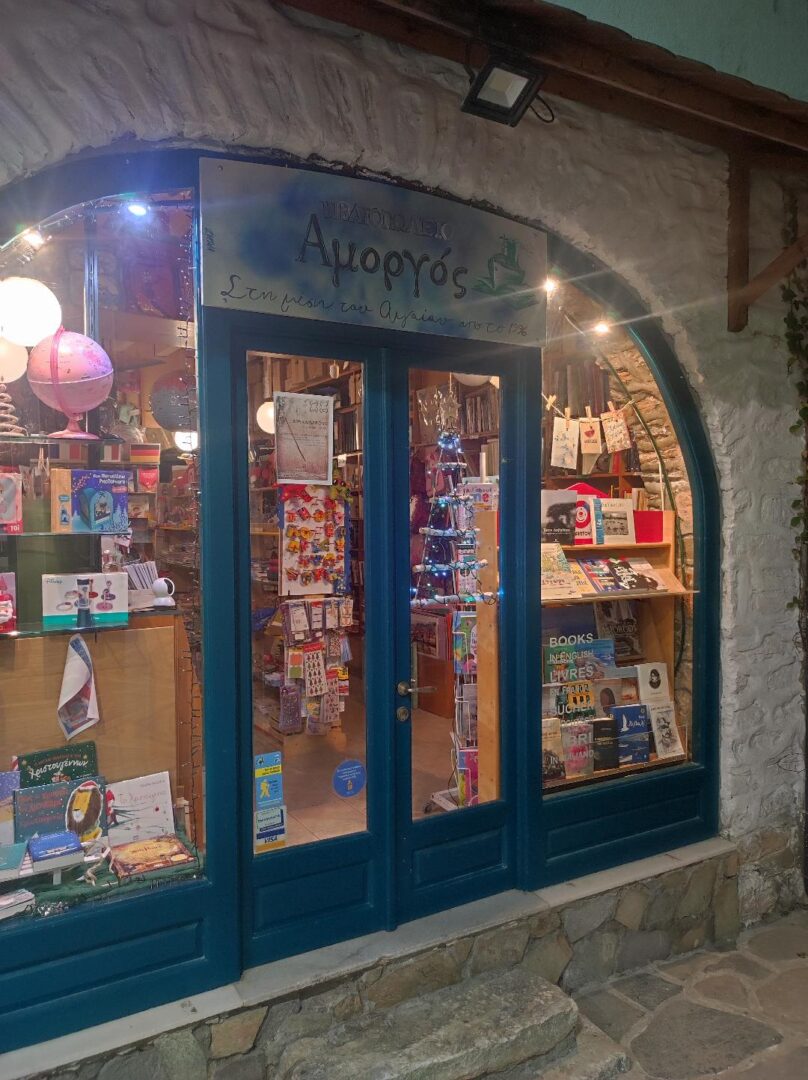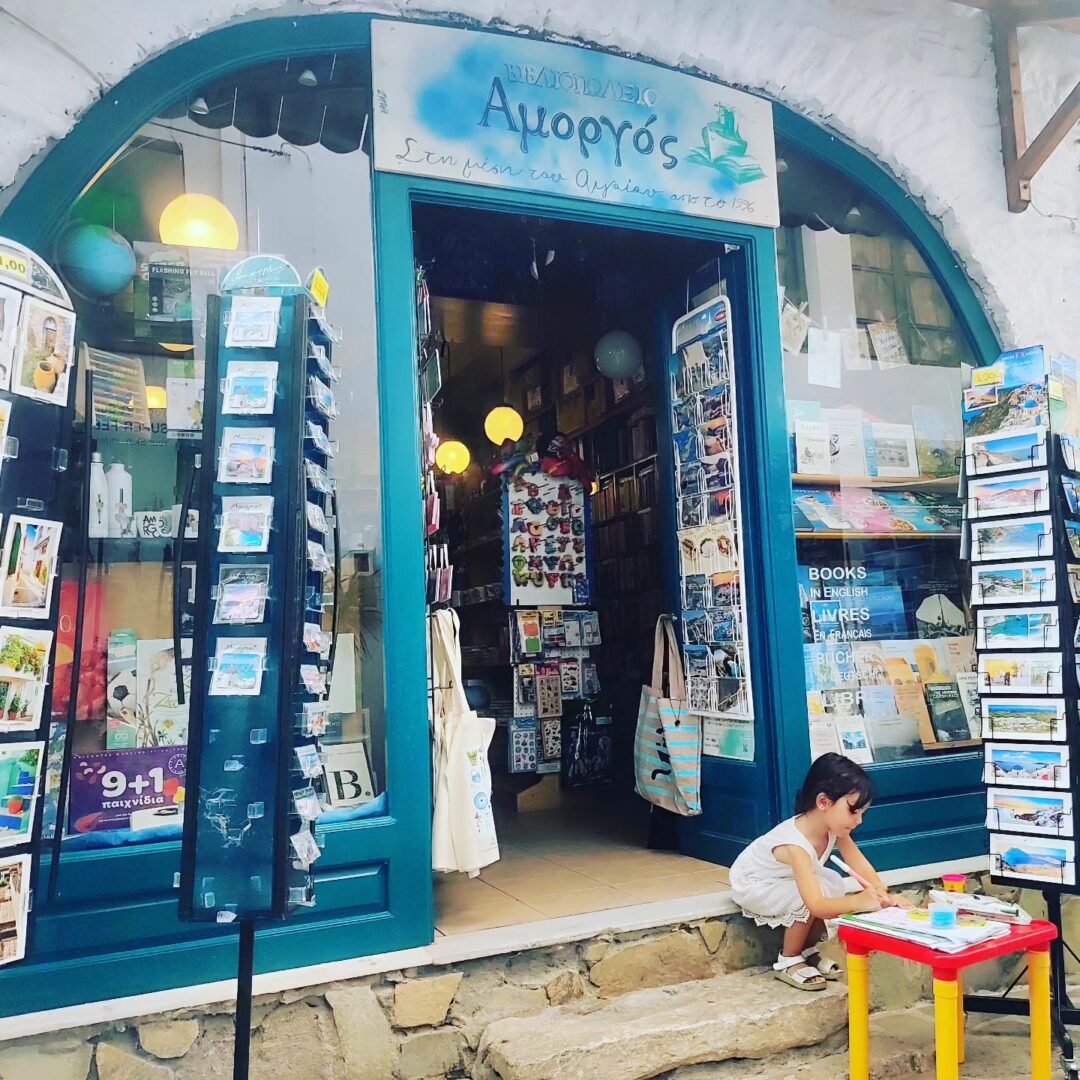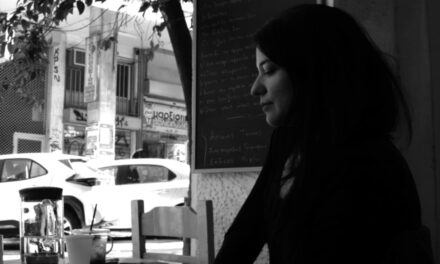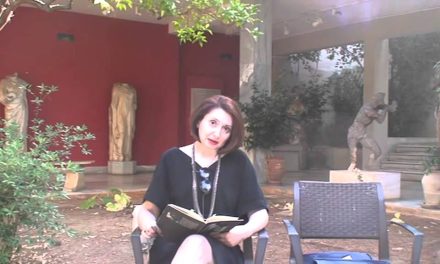Little bookstores constitute an integral part of our culture and our local communities. It’s the place where writers can connect with readers, where we discover new, unknown worlds, where children are captivated by the thrill of reading that can last a lifetime. They are the places that never stop inspiring us, uniting us and spreading the love for books. Their role proves crucial in case they are located in remote areas such as the Greek islands.

Reading Greece* spoke to Moschoula Paraskevopoulou, owner of Amorgos Bookstore , about the role of little bookstores and their influence on reading preferences, as well as the challenges they are faced with and the prospects ahead.
Amorgos Bookstore is a little bookstore, which constitutes a point of reference for the island’s visitors and booklovers. What’s the story behind this venture of yours?
Ιn 2007 I started working in the bookstore until 2017 when the loss of the owner motivated me to continue this beacon of culture in the middle of the Aegean.
What kind of books can readers find in your bookstores?
There are numerous categories. They are books in Greek, English, French, German and Italian. For example, Modern Literature, Classics and Poetry. There are also children’s books
How important is the role of little bookstores? How do they influence reading preferences?
The role of little bookstores is very important. They constitute beacons of culture. Little bookstore owners have a personal relationship with readers and recommend what suits them. In this way, they greatly influence reading preferences. In case a relationship of trust is developed they may suggest a different genre to read that they think would equally suit readers.

Which are the main challenges little bookstores face nowadays? How do you respond to these challenges? What about the prospects ahead?
There are too many challenges. The internet, publishers who have become competitors, shipping costs. I live in a place with only a few readers because of the size of the island so that’s a challenge too. I’m trying to find ways to get people to come into the bookstore through book presentations.
Would you say that the recent socio-economic crisis and the pandemic that followed has broken the ties connecting part of the readers with the choices and orientation of traditional publishers, creating an aesthetic and intellectual space that may certainly grow?
In 2007, when I started in the bookstore, I briefly experienced the heyday of the book market. I won’t forget that people were buying books without thinking about it. The crisis triggered major changes and people now only buy one or two books. In addition, the pandemic boosted internet shopping and consequently the big bookstore chains and publishers. Quite a few people now prefer to have books at their door with the click of a button. Fortunately, however, there are still some who prefer to visit us, talk to us, listen to our proposals and thus chart their next reading journey.
In the era of online communication, how have the social media influenced what people choose to read? How have reading preferences changed/evolved during the years?
Social media have played an important role in the book market. It happens so often that people come to look for a book they have seen on Facebook or TikTok. I have noticed that in the last few years parents prefer to buy a book than a toy for their children. Another promising thing is that young people come in looking for poetry or a classic book.
*Ιnterview by Athina Rossoglou
TAGS: LITERATURE & BOOKS | READING GREECE













